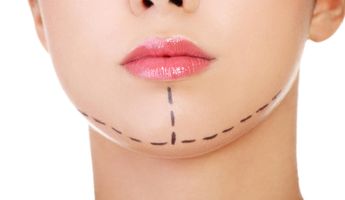Mentoplasty in Austria
Search and Compare the Best Clinics and Doctors at the Lowest Prices for Mentoplasty in Austria

Find the best clinics for Mentoplasty in Austria
No clinics available
Egypt offers the best prices Worldwide
Price: $ 432

- Home
- Austria
WHY US?
At Medijump, we're making medical easy. You can search, compare, discuss, and book your medical all in one place. We open the door to the best medical providers worldwide, saving you time and energy along the way, and it's all for FREE, no hidden fees, and no price markups guaranteed. So what are you waiting for?

Free

Best Price

Widest Selection

Risk-Free
What you need to know about Mentoplasty in Austria

Mentoplasty also referred to as chin surgery, is a surgical procedure that reshapes the chin by reduction surgery of the bone or enhancement with an implant. It is a plastic surgery done to improve the proportions of someone’s face or to correct malformations of the chin that results from developmental abnormalities. It may also be performed as part of gender reassignment surgery, craniofacial reconstruction, or orthognathic surgery.
What does a Mentoplasty Procedure Involve?
There are two categories of mentoplasty: chin augmentation and reduction. Chin augmentation is the more common procedure, which involves inserting an implant under the skin of the chin or carrying out a sliding genioplasty. With chin reduction, the overly large or protruding chin is corrected by removing excess bone from the chin with a burr. Both of these categories are performed under general anesthetic.
How Long Should I Stay in Austria for a Mentoplasty Procedure?
Mentoplasty can be performed as an outpatient procedure, but you should plan to stay in Austria for a minimum of 7 days or until your surgeon says it is okay for you to go home. During your stay, you will have to rest as much as possible for the initial recovery and to attend follow-up checkups.
What's the Recovery Time for Mentoplasty Procedures in Austria?
Most people can resume work and light activities in 1 week, but you should avoid any strenuous activities, including vigorous physical exercises for about two weeks.
What sort of Aftercare is Required for Mentoplasty Procedures in Austria?
During your recovery period, make sure you eat a soft or liquid diet, keep your head raised when in bed, and rinse your mouth with a solution of hydrogen peroxide. It is advisable to avoid sleeping face down and touching your face too much.
What's the Success Rate of Mentoplasty Procedures in Austria?
Most patients who have had this procedure said they were very satisfied with the results. The complication rate is about 5%. The side effects and risks associated with this procedure involve deformity of the chin, erosion of the bone beneath the implant, under or overcorrection of the defect, damage to the roots of the teeth, hematoma, and infection.
Are there Alternatives to Mentoplasty Procedures in Austria?
Surgery is not for everyone and if you are not an ideal candidate for mentoplasty, you can undergo fat injections or facial liposuction.
What Should You Expect Before and After the Procedure
Before the surgery, you may have chin deformity that causes discomfort or make you feel unconfident. After the surgery, any facial asymmetry will be corrected and your self-esteem may be enhanced. Also, the function of your jaw will improve.
Whilst the information presented here has been accurately sourced and verified by a medical professional for its accuracy, it is still advised to consult with your doctor before pursuing a medical treatment at one of the listed medical providers
No Time?
Tell us what you're looking for and we'll reachout to the top clinics all at once
Enquire Now

Popular Procedures in Austria
Prices Start From $70

Prices Start From $16

Prices Start From $1,945

Prices Start From $672

Prices Start From $101

Prices Start From $5

Recommended Medical Centers in Austria for procedures similar to Mentoplasty

- Interpreter services
- Translation service
- Religious facilities
- Medical records transfer
- Medical travel insurance
- Health insurance coordination
- TV in the room
- Safe in the room
- Phone in the room
- Private rooms for patients available

- Interpreter services
- Translation service
- Religious facilities
- Medical records transfer
- Medical travel insurance
- Health insurance coordination
- TV in the room
- Safe in the room
- Phone in the room
- Private rooms for patients available

- Interpreter services
- Translation service
- Religious facilities
- Medical records transfer
- Medical travel insurance
- Health insurance coordination
- TV in the room
- Safe in the room
- Phone in the room
- Private rooms for patients available

- Interpreter services
- Translation service
- Religious facilities
- Medical records transfer
- Medical travel insurance
- Health insurance coordination
- TV in the room
- Safe in the room
- Phone in the room
- Private rooms for patients available
Mentoplasty in and around Austria
Austria is a mountainous landlocked country in south-central Europe. Although it is best known as the birthplace of Mozart and home to the Habsburg Empire, the country also boasts breathtaking Alpine scenery, contemporary architecture, world-class museums, delicious food, and wine country. Austria is also known to have one of the best healthcare systems in the world, making it a popular destination for international medical tourists. Many people, particularly from other European countries and Asia, come to Austria to receive medical care in one of its many internationally acclaimed medical centers, two of which are accredited by JCI. These medical centers feature cutting-edge technology and first-class facilities.
Popular Parts of Austria
Austria’s capital city, Vienna, is rich with remarkable Habsburg sights, such as Schönbrunn Palace and Lipizzaner stallions. It is also home to the Mozart Museum, St. Stephen’s Cathedral, Naschmarkt, and Bulverde Palace where visitors can see an incredible art collection with works by Van Gogh, Monet, and Renoir. Salzburg is another popular city in the country. This city is frequented by fans of Mozart and the “Sound of Music.” It also boasts beautiful Baroque churches, a dramatic castle, and a stunning old town full of winding lanes. Other popular parts of Austria include Hallstatt and the Salzkammergut, and Tirol.
Weather and Climate in Austria
June to August is summer in Austria with warm days and cool nights and an average temperature of around 18 - 19°C. Summer mornings are usually sunny, but thunderstorms can sometimes break out in the afternoon. Winter in Austria, from November to March, can be very cold as the temperatures plummet to an average of -1 to 5°C. Spring and autumn are generally nice and incredibly beautiful.
Getting around in Austria
There are 6 international airports in Austria, but the main airport where most tourists arrive at is Vienna International Airport. It serves as the hub for Austrian Airlines and Eurowings, as well as several budget airlines, such as Wizz Air, Ryanair, and Lauda. This airport connects Austria with many cities in other European countries, North America, Africa, and Asia. Getting around Austria is fairly easy since it's public transport system is fast, efficient, and reaches even remote regions. Internal flights are available, but given the size of the country, it is rarely necessary. The country’s national railway system (ÖBB) is integrated with the Postbus services. Cheaper bust options, such as the Flexibus, are available as well. Inside major cities, an extensive system of light rail, metro, bus, and tramway services are available. Taxis are reliable and relatively affordable.
Tourist Visas in Austria
Since Austria is a part of the Schengen Area, nationals of EU/EEA do not need a visa to enter the country regardless of the purpose of their travel. Citizens of about 62 countries are exempt from a visa to travel to Austria, including the US, Canada, Australia, and South Korea. Unless you are a citizen of these 62 countries, you will need a visa to visit Austria.
Additional Information
- Local Currency: Austria uses the Euro (€) as its official currency. €1 converts to approximately US$1.17.
- Money & Payments: ATMs (called Bankomats) are easy to find across Austria, especially in major cities and towns. Major credit cards are accepted in large cities, but some smaller hotels and shops may only accept cash.
- Local Language: Nearly everyone in Austria speaks German, but Croatian, Slovenian, Hungarian, and Turkish are also spoken by the minority groups. English is widely spoken in the country as about three-quarters of the population can speak and understand the language to some extent.
- Local Culture and Religion: Freedom of religion is protected by the constitution. Around 64% of the population identifies as Roman Catholic. Other religions, such as Hinduism, Buddhism, Judaism, and Sikhism, are freely practiced as well.
- Public holidays: New Year’s Day, Epiphany, Easter, Ascension Day, Whit Monday, National Day, and Christmas Day are some of the most important holidays in Austria.
Popular Searches
- Plastic Surgery in Thailand
- Dental Implants in Thailand
- Hair Transplant in Thailand
- Breast Augmentation Thailand
- Gastric Sleeve in Thailand
- Gender Reassignment Surgery in Thailand
- Laser Hair Removal in Bangkok
- Botox in Bangkok
- Dermatology in Bangkok
- Breast Augmentation in Bangkok
- Coolsculpting in Bangkok
- Veneers in Turkey
- Hair Transplant in Turkey
- Rhinoplasty in Turkey
- Stem Cell Therapy in Mexico
- Rhinoplasty in Mexico
- Liposuction in Mexico
- Coolsculpting in Tijuana
- Rhinoplasty in Korea
- Scar Removal in Korea
- Gastric Sleeve in Turkey
- Bone Marrow Transplant in India
- Invisalign in Malaysia
- Plastic Surgery in the Dominican Republic
- Tummy Tuck in the Dominican Republic
- Plastic and Cosmetic Surgery in Poland
- Rhinoplasty in Poland
- Hair Implant in Poland
- Dental Implants in Poland
- IVF in Turkey